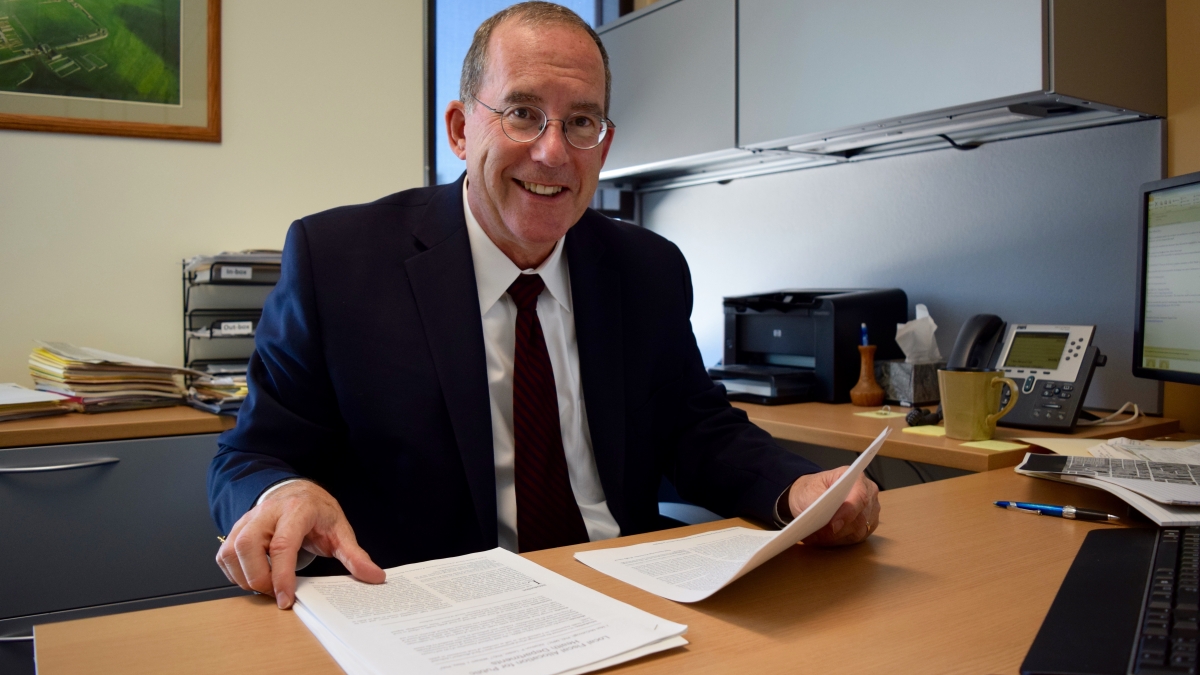Partnership to focus on better health outcomes for some of Maricopa County’s most vulnerable

Led by College of Health Solutions researcher William Riley, the group of ASU faculty will work with Arizona’s leading health, social and criminal justice organizations to design more effective and cost-efficient ways to deliver health care to Medicaid patients who have a history of mental-health or substance-abuse issues and use multiple organizations’ services.
A multidisciplinary group of Arizona State University faculty will spend the next two years researching and implementing new ways to improve services and reduce costs for some of Maricopa County’s most vulnerable populations as part of a $1 million translational research grant.
Led by College of Health Solutions researcher William Riley, professor of health care delivery, the group will work with Arizona’s leading health, social and criminal justice organizations to design more effective and cost-efficient ways to deliver health care to Medicaid patients who have a history of mental-health or substance-abuse issues and use multiple organizations’ services.
For the first six months, the team of researchers and stakeholders from more than 40 organizations will meet regularly to analyze existing data and information to determine ways to coordinate and improve services. The goal is to break down barriers among these organizations that are distinct and separate yet often work with the same populations, a situation that can leads to duplication of services and high costs.
“Mental-health providers, social-service agencies, first responders, law enforcement, the jail, court system and probation department each provide extraordinary service for people with severe mental illness, yet the entire system is fragmented, with inefficient care coordination characterized by numerous gaps, overlap and rework,” Riley said.
Once the team decides which policies to align and coordinate, the remaining year and a half of the grant will be spent implementing and analyzing the new systems to determine their effectiveness in improving health outcomes and reducing costs. The group will monitor results and assess data such as hospitalization rates and encounters with law enforcement.
Joining Riley on this project are George Runger, professor of biomedical informatics; Michael Shafer, director of the Center for Applied Behavioral Health Policy; Katie Pine and Mac McCullough, assistant professors of health care delivery in the College of Health Solutions; Margaret Hinrichs, postdoctoral research associate in the School for the Future of Innovation in Society; Kailey Love, project manager; Gevork Harootunian, statistical director; Fernando Hernandez, program manager from the ASU Decision Theater; and many of Maricopa County’s principal public health, social and legal organizations.
The project is funded by the Robert Wood Johnson Foundation.
More Health and medicine

The science of sibling dynamics: Why we fight, how we relate and why it matters
We have Mother’s Day, Father’s Day and even Grandparents’ Day. But siblings? Usually they get a hand-me-down sweatshirt and, with…

New study seeks to combat national kidney shortage, improve availability for organ transplants
Chronic kidney disease affects one in seven adults in the United States. For two in 1,000 Americans, this disease will…

New initiative aims to make nursing degrees more accessible
Isabella Koklys is graduating in December, so she won’t be one of the students using the Edson College of Nursing and Health…

